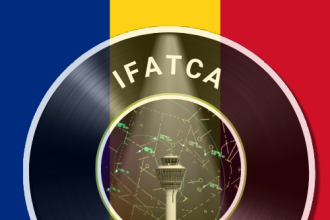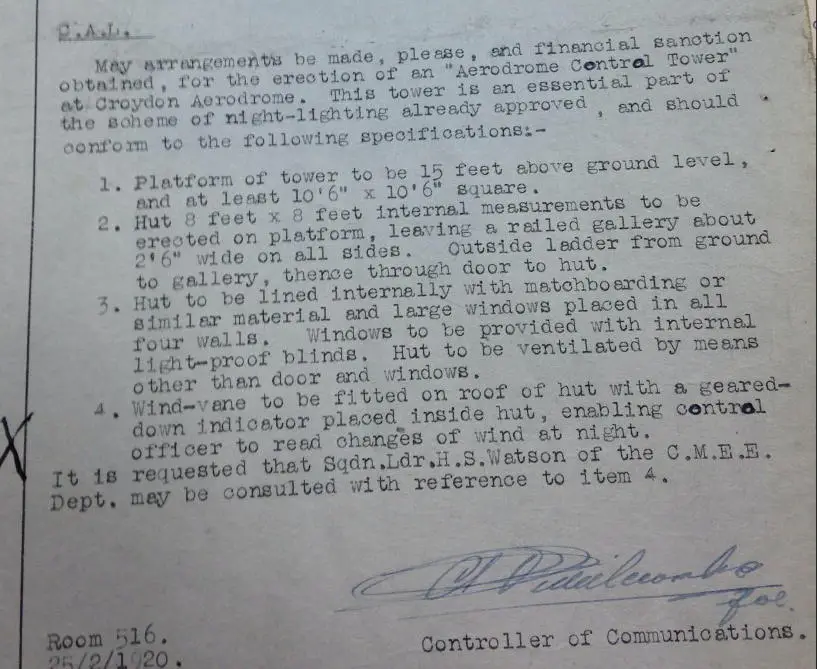The 42nd ICAO General Assembly was held in Montréal, Canada, from 23 September to 3 October 2025, with IFATCA once again an enthusiastic and active participant. As the sovereign body of ICAO, the Assembly, convened every three years, reviews and sets policy for ICAO’s work programme across the technical, administrative, executive, legal, and economic fields. Of these, the technical discussions are of greatest relevance to air traffic controllers, offering IFATCA an important opportunity to contribute to the global discourse on issues directly affecting the profession.
The IFATCA delegation was led by David Perks (Liaison Officer to the ICAO Air Navigation Commission) and included Jean-François Lepage (Deputy President), Tom McRobert (Executive Vice-President, Finance), and Andrew LeBovidge (Executive Vice-President, Americas). The delegation reviewed more than 700 working papers, formally co-sponsoring or supporting thirteen of them. Among these were papers on Fatigue Management (WP/258), Positive Safety Culture (WP/259), GNSS Radio Frequency Interference (WP/335), and Peer Support Programmes (WP/334).
In addition to co-sponsoring and supporting papers, the IFATCA delegation made a number of interventions (ICAO’s term for formal comments) on topics directly relevant to air traffic controllers. In WP/341, the Civil Air Navigation Services Organisation (CANSO) presented a concept of operations for a Complete Air Traffic Control System (CATS). IFATCA welcomed the opportunity to collaborate with all aviation stakeholders and acknowledged CANSO’s significant effort. However, IFATCA’s intervention reminded the Assembly that at the heart of any vision for the future must remain the human element, technology should enhance controllers’ capabilities, not replace them.
IFATCA also intervened to support WP/87 from the United Arab Emirates, which advocated modernising fatigue management systems in air traffic control. IFATCA encouraged ICAO to draw on expert groups to develop harmonised Standards and Recommended Practices (SARPs) and urged States to implement robust fatigue management systems.
There were further interventions on WP/167, expressing support for peer support programmes while emphasising the need for safeguards to protect the confidentiality of privileged information, and WP/417, which urged caution regarding the use of standardised aptitude and personality testing in ATC selection processes.
Several key themes from the Assembly will influence the work of air traffic controllers worldwide. First, the Assembly supported ICAO’s push for a global air traffic management (ATM) architecture, highlighting the importance of a harmonised and interoperable system. It also recognised the need for a data-driven, service-oriented architecture that enables flexible, scalable ATM services through digital integration, facilitating more efficient cross-regional airspace optimisation.
Second, it was encouraging to see that despite the rise of advanced automation and artificial intelligence, the Assembly reaffirmed a human-centred vision for ATM. This was reflected in the strong emphasis on fatigue management, safety culture, peer support, and integrating human performance into technological advancement. Collectively, these priorities ensure that modernisation strengthens the central role of air traffic controllers in global aviation safety, rather than diminishing it.
Finally, the Assembly acknowledged several pressing challenges for States and air navigation service providers (ANSPs) that directly affect air traffic controllers, including global ATCO shortages, the lack of standardised licensing between States and regions, and the ongoing issue of GNSS radio frequency interference.
IFATCA continues its long-standing tradition of active participation in global aviation forums, with the triennial ICAO Assembly remaining the most significant. Once again, IFATCA’s representatives collaborated constructively with delegations from Member States and other international organisations to ensure that the interests and professional perspectives of air traffic controllers remained at the forefront of deliberations and were reflected in the Assembly’s outcomes.
Find IFATCA’s interventions below
- AIR TRAFFIC MANAGEMENT: A GLOBAL STRATEGIC IMPERATIVE FOR FUTURE AVIATION (WP341)
- MODERNIZING FATIGUE MANAGEMENT AND HUMAN PERFORMANCE STANDARDS IN ATC (WP87)
- ENHANCING SAFETY AND PERFORMANCE USING PEER SUPPORT PROGRAMS (PSP) FOR AVIATION LICENCE HOLDERS (WP167)
- CONSIDERATION OF PERSONALITY TRAITS IN STAFF SELECTION PROCESSES FOR AIR TRAFFIC CONTROL FUNCTION (WP417)
- ARAB STATES POSITION ON A PROPOSAL TO ESTABLISH A GLOBAL AUDIT PROGRAMME OF AIR NAVIGATION EFFICIENCY (WP400)
- NEED TO REVIEW AND ALIGN THE ICAO ANNEX 11 AIR TRAFFIC SERVICES (ATS) AND
DOC 9426 – ATS PLANNING MANUAL ON AIRSPACE AND ATS ROUTE DESIGN
REQUIREMENTS WITH DOC 8168 – PROCEDURE FOR AIR NAVIGATION SERVICE
OPERATIONS (PANS-OPS) (WP066) - PROGRESSIVE AIR TRAFFIC CONTROLLERS (ATCO) LICENSING (WP296)
- ENTERING AIRSPACE THAT REQUIRES ACAS II/TCAS 7.1 WITH INOPERATIVE EQUIPMENT
(WP494) - ONGOING WORK RELATED TO CONFLICT ZONES –
OBLIGATIONS OF AND SUPPORT TO MEMBER STATES (WP35 & WP201)
David Perks – IFATCA ICAO ANC Liaison: Regarding working paper 341 presented by CANSO, the International Federation of Air Traffic Controllers’ Associations (IFATCA) acknowledges the considerable effort undertaken and congratulates those involved. With regard to the action inviting ICAO to consider this concept of operations in high-level concept documents, including the GANP, we respectfully submit the following.
The aviation community is not alone in standing on the precipice of a transformative change on par with the Industrial Revolution. As such, there is still considerable doubt as to how the tools of the future, including advanced automation and artificial intelligence, will be integrated into existing technologies, processes and procedures. IFATCA firmly believes that the heart of any vision must always be the human with technology enhancing their capabilities, never replacing them.
IFATCA also notes Assembly Resolution A40-27 and stands ready to collaborate with all stakeholders in accordance with the process highlighted in the intervention made by the Netherlands.
Jean-François Lepage, IFATCA Deputy President: The International Federation of Air Traffic Controllers’ Associations (IFATCA) supports WP 87 as presented by the United Arab Emirates. Fatigue for air traffic controllers is one of the most prevalent concerns of our member associations and we agree the global approach to fatigue risk management is indeed highly fragmented.
As WP87 states, air traffic controllers must be supported with systems that proactively manage fatigue, stress and cognitive demands. We encourage ICAO to utilize appropriate expert groups to provide leadership in the development of modernized and harmonized policies, and encourage Member States to adopt robust fatigue management systems to collectively reduce fatigue-related risk to further promote the safety of the aviation system.
Andrew LeBovidge, IFATCA EVP Americas: IFATCA supports working paper 167 presented by Australia and Canada. Peer Support Programs provide a valuable tool for the well-being of aviation safety professionals and we therefore strongly encourage their widespread development and implementation.
IFATCA would like to reinforce that confidentiality within such programs is of paramount importance and that the sharing of any privileged information between the PSP and the regulator must be consensual and carefully managed. We submit that the proper handling of such information is critical, as the trust established within the program is vital for its success. If that trust is lost, it will have a chilling effect on licence holders contemplating participating in a PSP and therefore negate the many benefits that may be realized.
Tom McRobert, IFATCA EVP Finance: The International Federation of Air Traffic Controllers’ Associations (IFATCA) acknowledges that the testing for, and identification of, certain personality traits can be useful during the selection process of air traffic controllers. Where possible, we also support the principle of standardization for the selection, training and testing of air traffic controllers.
However, with regard to updating ICAO Guidance Material, in particular PANS-TRAINING and the Manual on Air Traffic Controller Competency-based Training and Assessment, to reflect the implications of personality traits, and to correlate these traits with existing competencies, we urge caution.
We acknowledge that some standardised tests are relatively widely used to assist in the selection of air traffic controllers. However, we note that aptitude and personality tests have continued over at least the last 50 years they have been used and we don’t believe the science is settled. Indeed, even the First European Air Traffic Controller Selection Test Personality Questionnaire (FEAST-PQ) referenced in WP/417 has been updated several times since it was first introduced in 2010.
As such, we respectfully submit that careful consideration should be given before procedures and guidance material regarding aptitude and personality testing for air traffic controllers be included in ICAO documentation.
Thank you, Mr Chair, and good morning to all. With regard to Working Paper 400, IFATCA notes the intervention made by the Secretariat yesterday. We also support the principles of exploring and encouraging opportunities for efficiency gains espoused in the Singaporean intervention. Therefore, IFATCA continues to support Recommendation 2/3.1, as passed at the 14th Air Navigation Conference, and welcomes further constructive discussions after a study into the feasibility of establishing an air navigation efficiency audit program has been completed.
David Perks – IFATCA ICAO ANC Liaison: In the interest of time this intervention is on behalf of IFACCA and IFALPA. We thank South Africa for Working Paper 66 and agree that the procedures and requirements detailed in PANS-OPS and other documents referenced in the Working Paper could benefit from consolidation. However, we agree with the interventions from Brazil and Australia and others indeed and respectfully submit that these provisions are too detailed and prescriptive to be included in a new annex. With regard to the intervention made by the Secretariat we note that DOC 9426 the Air Traffic Service Planning Manual referenced in the Working Paper was last updated in 1992 and also noting that the appropriate expert groups have already been tasked to update this document we would encourage broadening the scope of this work to consider the concerns raised in this Working Paper.
David Perks – IFATCA ICAO ANC Liaison: IFATCA agrees with the interventions by Denmark and Canada and supports the concept of progressive licensing as defined in Working Paper 296. And we thank CANSO for the paper. Many ANSPs and regulators already issue air traffic control licenses in accordance with this concept. And we agree that it provides benefits for both air traffic controllers and air navigation service providers. Indeed, as evidenced by the relatively wide use of progressive licensing, we respectfully submit that there are currently no barriers in Annex 1 and related SARPs and procedures that currently prevent its use. As such, whilst we support recommendations A and C of Working Paper 296, we question the need for ICAO to examine ways to ensure current SARPs permit the adoption of progressive licensing as per recommendation B. However, if necessary, we’d encourage the publication of guidance to clarify any confusion as to the applicability of the current rule set. Thank you, Chair. Thank you, Chair.
Michelle Bishop, Director of Programmes CANSO: In the interest of efficiency and on-time arrival, I would like to comment on behalf of both CANSO and IFATCA on WP/494. CANSO and IFATCA recognize the safety intent behind this paper and support initiatives that enhance pilot and controller situational awareness. Introducing mandatory reporting without clarifying its operational use could create inconsistencies and unnecessary complexity for controllers. We therefore recommend that any proposal for mandatory reporting state that such information is intended for situational awareness only and does not alter separation standards, unless otherwise determined by ICAO through established processes. We stand ready to work with ICAO and States to ensure that any new provisions are clear, and operationally feasible.
David Perks – IFATCA ICAO ANC Liaison: IFATCA supports Working Paper 35 and Working Paper 201.







